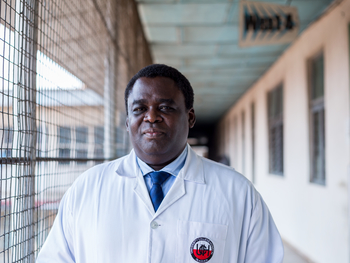Olakunle Obaro
Nigeria is among countries in sub-Saharan Africa that contributes majorly to the high percentage of deaths in women due to pregnancy and childbirth globally.
The deaths result largely from hypertension in pregnancy and bleeding.
This was disclosed by Professor Oladapo Olayemi, a consultant obstetrics and gynecologist, in an inaugural lecture titled: “Rocking the Cradle: The Pressure and the Prangs” at the University of Ibadan.
Nigeria and other countries globally contribute globally 68 percent, he stated
He stated that bleeding and hypertension in pregnancy and bleeding contributes 27 per cent and 14 per cent of these deaths.
The chairman, National Steering Committee on Maternal and Perinatal Death Surveillance and Response (MPDSR), declared that most of these deaths arise from delays in seeking care and reaching proper medical services.
He stated: “From studies, previous personal and family history of hypertension were strong determinants of women that could end up with hypertension in pregnancy which can progress to preeclampsia, a complex medical disorder that worldwide is responsible for more than 500,000 foetal and neonatal deaths and 70,000 maternal deaths each.”
He said evidence suggests that hypertension in pregnancy occur due to factors such as inflammatory changes in pregnancy, dietary deficiencies, genetic influences and immunological intolerance between maternal and foetal tissues.
“The presence of antioxidants in some studies is associated with a reduction in the incidence of preeclampsia. Women with decreasing consumption of antioxidants were more likely to develop preeclampsia compared to others
“The evidence for the genetic influence in the development of preeclampsia lies in the fact that preeclampsia has a moderate to strong correlation with family history. In our study, the family history was a strong predictor of hypertensive disorders and preeclampsia in pregnancy.
“Epidemiological evidence indicated that increased incidence of preeclampsia in a woman who is pregnant for the first time, pregnant for a new partner irrespective of having previous pregnancies, and those who have prior miscarriages, especially for the same partner.
“A pregnant woman is exposed to paternal antigens during the process of previous pregnancies, and these appear to cause the immunological system to develop tolerance in subsequent pregnancies, which protects the woman from preeclampsia.”

